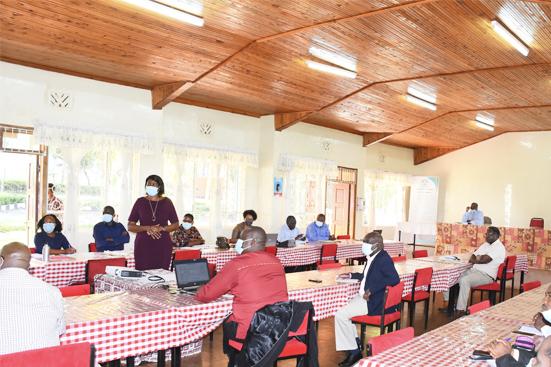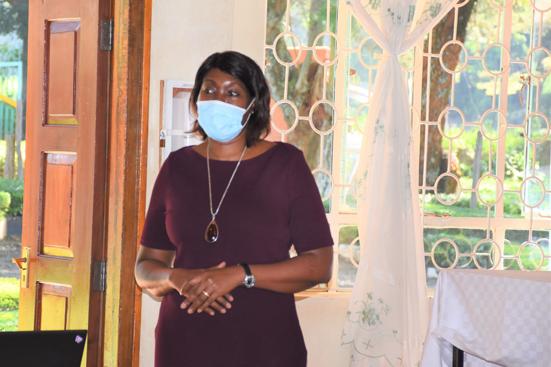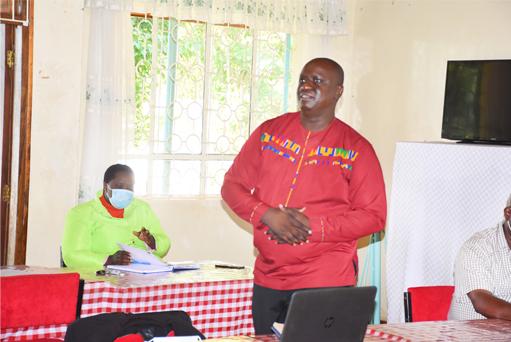Gender Mainstream Takes Shape in Maseno University

Maseno University’s Gender Committee held a successful one-day workshop on Gender Mainstream. Hosted by Dr. Caren Nyangara who is the director Gender Institute at Maseno University, the event drew participants from the University’s Management Committee lead by the Vice-Chancellor Prof. Julius Nyabundi. In attendance were Deputy Vice-Chancellors Prof. Mary Kipsat (DVC-ASA) and Prof. Joseph Chacha (DVC-PRI) with Mr. Davis Okeyo from the National Gender and Equality Commission as the chief guest.
The purpose of the workshop was to mainstream gender issues in the University (workplace) thereby giving the same priorities to women as to men, by considering the specific gender realities of women and men in the design of policies in the University. The aim of gender mainstreaming is to assess the implications for women and men of any planned action, legislation, policy or programme, its implementation, monitoring and evaluation. It also implies integrating gender issues into all aspects and at all levels of an institution or organization’s objectives, activities, systems, structures and resources allocation.

Maseno University’s Director of Gender Institute Dr. Caren Nyangara giving her contributions during the gender equality seminar.
In his contribution, the Vice-Chancellor noted “The gender division of labour, employment patterns, social roles, social structures and biological differences can contribute to gender-specific patterns of occupational hazards and risks.” Said Prof. Nyabundi.
He added that in Maseno University, women now constitute almost half the population of paid workers, equivalent to 40 per cent of the University workforce. He also emphasized that gender division of labour in the modern workforce is essential in promoting safer workplaces and healthier outcomes for all workers.
“To address gender disparities in workplace, gender integration should respond to the specific hazards and risks, working conditions and requirements, benefiting both and not adversely affecting either men or women in the implementation of protective and preventive measures. This means neither being gender biased nor being gender-blind (not taking gender into account) in the design of legislation and policies.” Said Dr.Caren.

In response to the changing workplace and the increase of psychosocial hazards and risks, Maseno University has continuingly regulated workplace bullying, violence, discrimination, and harassment (including sexual harassment) by introducing new legislations or incorporating new provisions in existing legislations to specifically address these risks.
In his contribution, the regional director of the National Gender Commission Mr. Davis Okeyo emphasized that the University Management should ensure that:
• Legislation pays attention to the biological differences between men and women to ensure they are equally protected.
• There is full legislative coverage of the sectors and occupations where women and men work.
• University legislation is not restricted to protecting workers in visibly dangerous jobs associated with high levels of accidents and injuries; but more attention is paid to all sectors and occupations, and in particular, those where women predominate.
• The Gender committee requires employers to implement risk management, preventive and protective measures ensuring gender differences are addressed.
• The Committee considers existing legislation concerning the prevention of violence and harassment at work.
• The Committee takes into account the interaction between work and home and ensures that workers can have a reasonable work-life balance.

